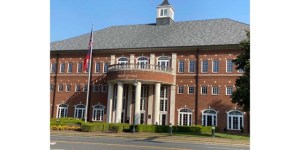The Election of 1860
Published 11:17 pm Saturday, November 6, 2010
The tumultuous events of the 1850s triggered what became arguably the most important election in American history — that of 1860. The heart of the debate stemmed from the expansion of slavery into the western territories won from Mexico in 1848. For the majority of white Americans, this signified not a moral issue over the owning of human beings but a political and economic struggle over which section of the United States would control the nation’s destiny.
Trending
The North envisioned the territories as a place where “free white men” could thrive and improve their economic station. This “free-labor ideology” promised rewards for hard work if the land in the territories opened to free whites at low prices. White Southerners, however, coveted the territories as land where white men could work hard, save money, and eventually purchase slaves to build a better life for their families. To these men, slavery was a cornerstone of white economic liberty. This “slave-labor ideology” promised rewards if the territories were open to Southern whites and their property (including slaves).
By 1860, extremists in the North and South had driven the nation to the brink of dissolution. Only one chance for political action to solve the growing rift remained. The last truly national party was the Democratic Party. When it met in Charleston in April of 1860, however, it split along sectional lines and could not reach a consensus on the issue of slavery’s expansion. When the delegates supported the notion of popular sovereignty instead of protection of slavery in all the territories, many representatives stormed out of the convention. The remaining Democrats met in Baltimore and nominated Stephen Douglas for president. Southern Democrats instead nominated John C. Breckenridge and approved a platform more supportive of slavery.
Many moderate Southerners, however, refused to join the Southern Democrats and opted for a more moderate stance. Refusing to focus on the slavery question, the new Constitutional Union Party supported the notion of national unity and adherence to Constitutional principles. In the North, a mixture of old anti-immigrant parties such as the Know-Nothings, disillusioned Democrats, and former Whigs joined the new Republican Party. Sensing victory, the party chose a moderate candidate, Abraham Lincoln, and a moderate platform.
To unify the North, the Republicans supported a more active role for the government in economic affairs such as a protective tariff, sale of cheap western lands to homesteaders, and a transcontinental railroad. While the Republicans were committed to ending the spread of slavery into the territories, they sought to appease the South by confirming slavery’s safety where it already existed.
The contest essentially resulted in two separate elections in the North and South. In the North, Lincoln and Douglas battled it out, while in the South, Breckenridge and Bell vied for votes. On Nov. 6, 1860, Lincoln shocked the county by winning all of the free states except New Jersey (which he split with Douglas). This meant that although he only garnered 39 percent of the total popular vote, he won the majority of electoral votes. Indeed, he held 180 electoral votes while Douglas, Bell, and Breckenridge combined totaled only 123.
Lincoln did not win because his opponents were splintered but because his votes were concentrated in the northern free states, which contained a majority of the electoral votes. Breckenridge won the entire lower South, including Georgia, Delaware, Maryland, and North Carolina, yet could not challenge Lincoln. From the southern perspective, it became clear that the North now controlled national politics.
Trending
This reality incited the Southern states. Most, including Georgia, had not even listed Lincoln on the presidential ballot. Secession inevitably followed, starting with South Carolina in December 1860. Southerners had lost faith in the political system and feared that a Republican administration would not only block the expansion of slavery but would also eventually interfere with the institution within the states themselves. The American experiment in republican government and democracy was about to face its greatest test.
This article is one of several that are running on Sundays about Dalton and life in Dalton leading up to the Civil War. The stories are provided by the Dalton-Whitfield Civil War 150th Anniversary Committee. To find out more about the committee go to www.dalton150th.com.






